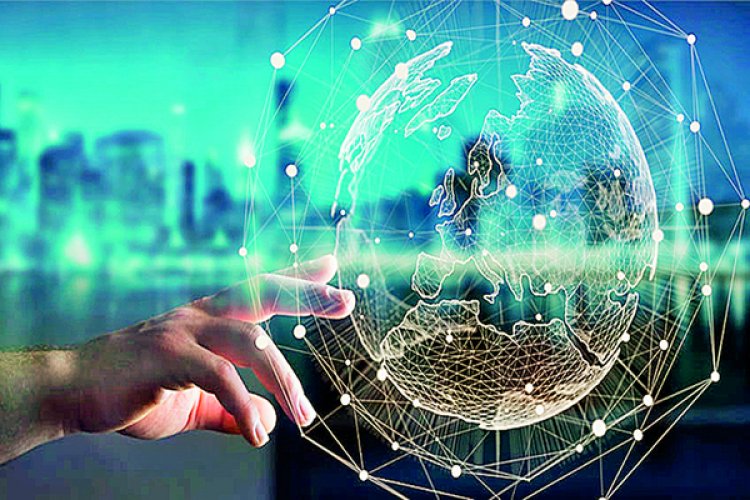India Hosts Global Partnership for Artificial Intelligence (GPAI) Summit
STORIES, ANALYSES, EXPERT VIEWS

The Global Partnership on Artificial Intelligence (GPAI) is a multi-stakeholder initiative which aims to bridge the gap between theory and practice on AI by supporting cutting-edge research and applied activities on AI-related priorities. Launched in June 2020 with 15 members, today GPAI’s membership has expanded to 28 member countries and the European Union. As one of the founding members of GPAI in 2020, the current incoming Support Chair of GPAI, and the Lead Chair for GPAI in 2024, India is hosting the Annual GPAI Summit from December 12 – 14, 2023.
Senior level government delegations from 29 GPAI member countries will participate in the Summit along with GPAI’s multi-stakeholder Experts’ Group, Global AI Experts, multilateral organisations, and other relevant stakeholders.
Research Symposium: As part of the Summit, the Ministry of Electronics and Information Technology (MeitY) in collaboration with the Centre for Responsible AI (CeRAI), IIT Madras is organising a Research Symposium under the theme, “Advancing Responsible AI in Public-Sector Applications”. The Symposium intends to provide a platform for Indian and International academicians and researchers to collaborate with other AI experts, present actionable research on Responsible AI in front of a global audience and enhance cross-sectoral research on responsible AI.
The nuclear and AI revolutions
In the context of the GPAI summit, C Raja Mohan (senior fellow, Society Policy Institute, Delhi and contributing editor on international affairs for The Indian Express) recalls some interesting and significant related issues.
The use of atomic bombs against Hiroshima and Nagasaki in August 1945, revealed the enormous destructive power of nuclear weapons. The AI revolution, writes Mohan “threatens an even bigger catastrophe — machines taking over from humanity and enslaving them. The broader impact of the AI revolution is likely to be far more sweeping……” AI “promises to transform the economy, society and polity in fundamental ways.”
The primary challenges include managing the impact of this new technology on geopolitical rivalry. These include creating international norms and institutions to govern its use. It is therefore, writes Mohan “no surprise that US-China agreements on AI are viewed as critical for the management of the new technological revolution…..” Both sides are nevertheless, “ moving vigorously to develop the military uses of AI.”
Beyond the bilateral, there is talk of international norms to manage the potential negative consequences of the AI revolution. The US, for example, is focused on building ‘like-minded coalitions’ to discuss the development of AI and manage its effects. One such initiative is the GPAI or the Global Partnership for Artificial Intelligence which has 28 members. It is also bringing its allies and partners together to enhance military deterrence against Russia and China.
Lessons India can draw from its own nuclear history, in dealing with AI
As India hosts the GPAI summit, Mohan mentions a few lessons that it can draw from its own nuclear history, in dealing with AI.
For one, “the disarmament idealism of the kind that animated India’s approach to nuclear weapons is fortunately behind us when it comes to AI……Unlike in the nuclear domain, India does not have the luxury of taking things easy until it’s too late in the AI domain.”
Second is the "importance of building on the current momentum in the partnership with the US on AI and other critical and emerging technologies……The fear of offending Beijing and ideological worries about getting too close to Washington prevented Delhi from taking full advantage of the possibilities that the civil nuclear initiative had opened up. The NDA government is less inhibited and has put technological cooperation with the US and the West at the very top of India’s national agenda. However, it needs to move on multiple policy fronts quickly to raise its position in the global AI hierarchy.”
In conclusion, Mohan writes “Delhi’s political posturing on technological development in the 1970s set India back badly, and it can’t afford to make the same mistake on AI today. Building strong domestic capabilities in AI is critical to making the best out of international cooperation. That, in turn, calls for a larger role for the private sector. If technological progress in the second half of the 20th century — especially in nuclear and space — were led by governments, it is the private sector that leading AI research, development and innovation in the West. The NDA’s recent efforts to open up the S&T sectors is a welcome first step. But the agenda of reforming India’s technology sector is at once large and urgent.”
















